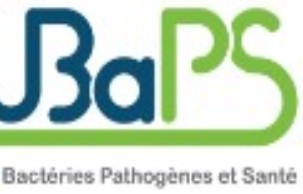Anti-S-layer monoclonal antibodies impact Clostridioides difficile physiology
Résumé
Clostridioides difficile (C. difficile), a gram-positive anaerobic and spore-forming bacterium, is the leading cause of nosocomial antibiotic-associated diarrhea in adults which is characterized by high levels of recurrence and mortality. Surface (S)-layer Protein A (SlpA), the most abundantly expressed protein on the bacterial surface, plays a crucial role in the early stages of infection although the nature of its involvement in C. difficile physiology is yet to be fully understood. Anti-S-layer antibodies have been identified in the sera of convalescent patients and have been correlated with improved outcomes of C. difficile infection (CDI). However, the precise mechanisms by which anti-S-layer antibodies confer protection to the host remain unknown. In this study, we report the first monoclonal antibodies (mAbs) targeting the S-layer of reference strain 630. Characterization of these mAbs unraveled important roles for the S-layer protein in growth,
toxin secretion, and biofilm formation by C. difficile, with differential and even opposite effects of various anti-SlpA mAbs on these functions. Moreover, one anti-SlpA mAb impaired C. difficile growth and conferred sensitivity to lysozyme-induced lysis. The results of this study show that anti-S-layer antibody responses can be beneficial or harmful for the course of CDI and provide important insights for the development of adequate S-layer-targeting therapeutics.
Fichier principal
 Anti-S-layer monoclonal antibodies impact Clostridioides difficile physiology (1).pdf (2.76 Mo)
Télécharger le fichier
Anti-S-layer monoclonal antibodies impact Clostridioides difficile physiology (1).pdf (2.76 Mo)
Télécharger le fichier
| Origine | Fichiers éditeurs autorisés sur une archive ouverte |
|---|---|
| licence |




